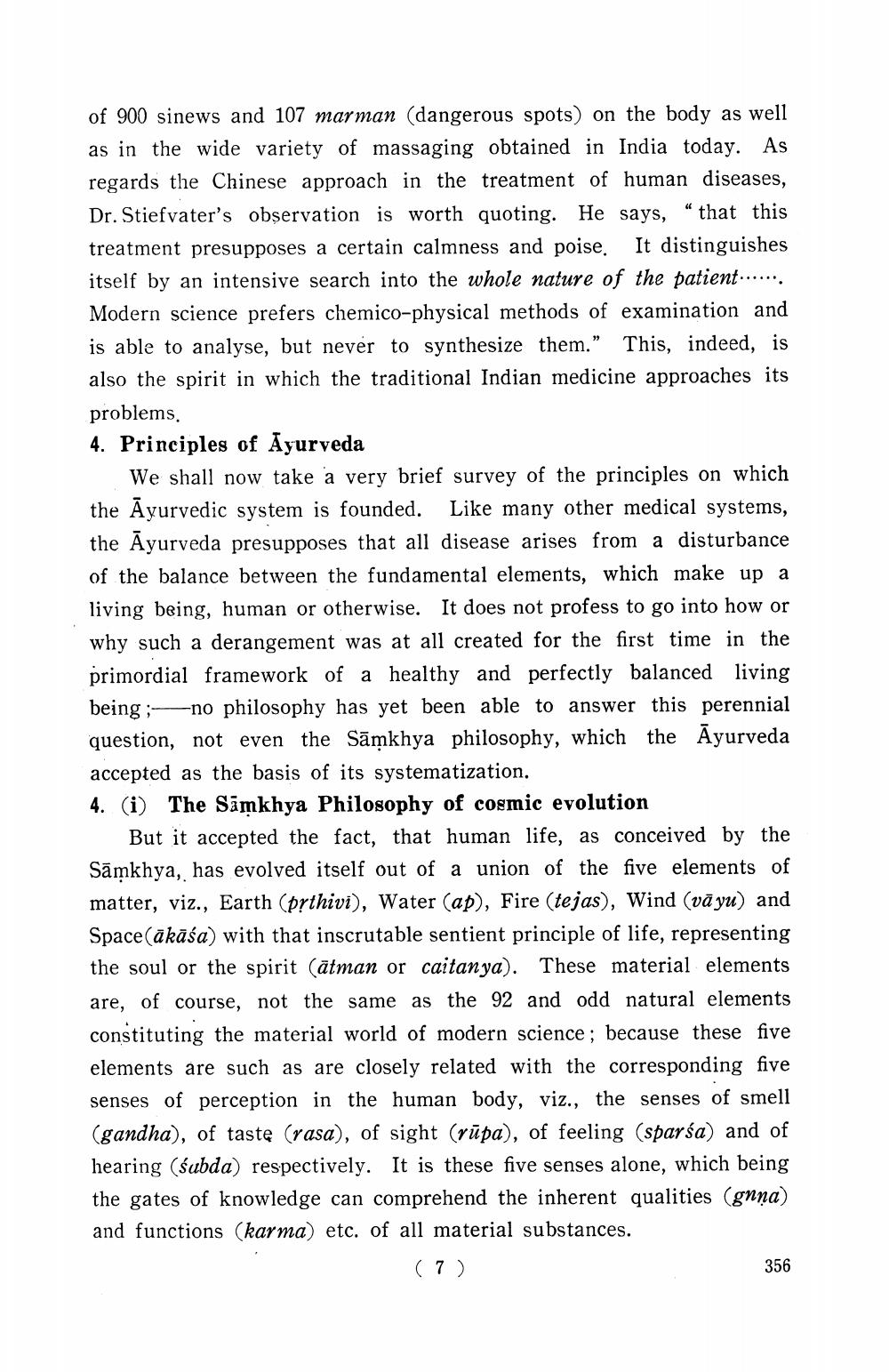Book Title: Traditional System Of Indian Medicine Ayurveda The Background Author(s): V V Gokhle Publisher: V V Gokhle View full book textPage 8
________________ of 900 sinews and 107 marman (dangerous spots) on the body as well as in the wide variety of massaging obtained in India today. As regards the Chinese approach in the treatment of human diseases, Dr. Stiefvater's observation is worth quoting. He says, “that this treatment presupposes a certain calmness and poise. It distinguishes itself by an intensive search into the whole nature of the patient....... Modern science prefers chemico-physical methods of examination and is able to analyse, but never to synthesize them.” This, indeed, is also the spirit in which the traditional Indian medicine approaches its problems. 4. Principles of Ayurveda We shall now take a very brief survey of the principles on which the Ayurvedic system is founded. Like many other medical systems, the Ayurveda presupposes that all disease arises from a disturbance of the balance between the fundamental elements, which make up a living being, human or otherwise. It does not profess to go into how or why such a derangement was at all created for the first time in the primordial framework of a healthy and perfectly balanced living being ; no philosophy has yet been able to answer this perennial question, not even the Sāmkhya philosophy, which the Ayurveda accepted as the basis of its systematization. 4. (i) The Samkhya Philosophy of cosmic evolution But it accepted the fact, that human life, as conceived by the Sāmkhya, has evolved itself out of a union of the five elements of matter, viz., Earth (prthivi), Water (ap), Fire (tejas), Wind (vā yu) and Space(ākāśa) with that inscrutable sentient principle of life, representing the soul or the spirit (atman or caitan ya). These material elements are, of course, not the same as the 92 and odd natural elements constituting the material world of modern science; because these five elements are such as are closely related with the corresponding five senses of perception in the human body, viz., the senses of smell (gandha), of tastę (rasa), of sight (rūpa), of feeling (sparśa) and of hearing (śubda) respectively. It is these five senses alone, which being the gates of knowledge can comprehend the inherent qualities (gnna) and functions (karma) etc. of all material substances. (7) 356Page Navigation
1 ... 6 7 8 9 10 11 12 13 14 15 16 17
